What I'm reading
Five books that got me through summer
This is I Ate Auckland, a free and occasional journal of my experiences, insights and breakthroughs as I live life as a dad, husband, radio presenter and restaurant reviewer.
I hosted the author David Baldacci at a special Writers Festival event this week. David has sold 200 million books and even more impressively, talks enthusiastically and warmly to everybody he meets. Imagine you were introduced to 50 people each day and that each one of those meetings was asynchronous - that every person you met had been looking forward to the introduction all day, already knew a lot of things about you, was possibly an intense fan of your work. Imagine how hard it would be to match their energy over and over again, so that every one of those people felt like you were just as happy to shake their hand as they were to shake yours. Baldacci managed to do this despite (because of?) being a self-described introvert.
He works hard, even on holiday. He writes two (usually bestselling) novels every year and often is writing two at once.
“I can’t even read two books at once” I told him, and its true. Though it probably would have been more accurate to say that I don’t want to read two books at once - I want to enter somebody’s world, read until the end, then put that book aside and get taken on a journey by someone else. I know not everyone is like this. Plenty of other people I know have two or more books by their bedside, and simply pick up the one they most feel like reading at the time. Good for them.
Right now is an exception because I have FOUR books on the go. Even so, I’m doing it monogamously - I started one, then paused to pick up another, and so on. Soon I will finish the fourth then pick up the third again, eventually ending up on the final page of the first. It’s a stupid system and I will defend it to the death.
Anyway all four of these books are brilliant and I wanted to tell you about them.
The Art of Gathering by Priya Parker
Reason I’m reading this one: wife thought it would help with my work
My wife Victoria is a facilitator (thinks about all aspects of an event to make sure it runs perfectly) and I am a celebrity MC (turns up at the last minute, takes all of the glory). Very occasionally our professional interests intersect, such as when I have a regular gig where an audience aren’t responding quite as warmly as they should be and I decide that perhaps I should stop blaming them for remaining unamused. Perhaps there is something I can suggest to improve the event itself, rather than just workshopping my opening joke for the third time.
Enter Priya Parker, whose book challenges people running any sort of gathering (wedding, sales conference, church service, comedy night) to ask themselves key questions before putting the event on. What is the purpose of the event? That being the case, who should and shouldn’t be on the invite list? What rules might be necessary to make sure that purpose is achieved?
Some of this might seem obvious, but lots of it isn’t. If you’ve ever attended (or worse, hosted) an event and at the end thought “well what was the point of that?”, you will like this book.
Tom Lake by Ann Patchett
Reason I’m reading this one: someone spilt a drink on our library copy so we had to pay for it; now I’m forcing everyone in the family to read it so we get value out of the compulsory purchase
Reason I interrupted the previous book to start reading it: because it was a summer holiday and I felt vaguely cheated reading a work book, no matter how interesting
This is a novel written so beautifully that it’s just a lovely pleasure to spend time inside it. Set during Covid lockdown without being about Covid, Patchett uses the forced homecoming of three daughters as an opportunity for the parents to tell them their marriage origin story. Though it’s set on an apple farm and the book cover looks a little janky, there is some glamour in the subject matter via the mother’s earlier career in Hollywood. But most of the joy so far has been in the way she thinks and talks about her daughters, and in the way the author uses simple but poetic language to animate a cast of characters in the present and past.
Sidenote: there are a couple of moments early on where you worry that a female character is going to be assaulted - the sort of thing that creators often write into books and TV shows to add significance to the plot. In fact on both occasions the guy who you’re worried will be a perpetrator turns out to be a good guy: not always the case in real life, but the fact the author can create high emotional stakes without the use of one of these “moments” makes me like her even more.
Amusing Ourselves to Death: Public Discourse in the Age of Show Business by Neil Postman
Reason I’m reading it: smart people in podcasts keep referring to it
Reason I interrupted the previous book to start reading it: I ordered it before Christmas but because of the statutory holidays it took ages to arrive and by then my anticipation was at fever pitch
When you speak publicly as I do about the problems of social media (that it is destroying a generation of minds, for example) you get used to people raising the same objections to your argument. One common one is that “people said the same thing about television”.
Jonathan Haidt has an interesting rebuttal to this. He says that unlike with TV or video games or the printing press, this time is different because young people themselves see the problems with social media - many wish for a world in which it didn’t exist; many only use it because they don’t feel they have a choice.
But I’ve been wondering about a different sort of rebuttal, along these lines: yes, people did indeed complain television was ruining people’s minds. And they were right.
In this famous book from 1985, Neil Postman looks at the many ways in which a television culture has destroyed discourse (a word academics enjoy, which basically means ‘the way we discuss things’).
He says that while everyone was worried about George Orwell’s vision of the future - citizens afraid to question authority due to the threat of violence - we should in fact be worried about the vision of Aldous Huxley - citizens with no interest in questioning authority because they are distracted by entertainment. If this was true when everyone was at home watching M*A*S*H* on television, it’s even more true now when you can watch Tik Tok while waiting for the lights to change.
How to Know A Person by David Brooks
Reason I’m reading it: I interviewed him for my radio show a year or two ago and can’t stop thinking about some of the things he said
Reason I interrupted the previous book to start reading it: I’ve been on a wait list for it at the library and finally my number came up (maybe I should spill a cup of tea over it so I can keep it forever)
I’ve previously written about the premise of this book: that everybody is interesting in their own way, and that all we have to do is be patient and respectful enough and we will unlock the most beautiful parts of those around us. The thing is it’s much easier to write a Substack preaching this than to actually do it, so I’m now doubling down on the 20 minute interview I did with David by reading his entire book (I sometimes feel after 20 minutes that there can’t be much more to know about what an author has to say, but even after reading the foreword of this one I can see the book is going to be full of treasures).
So if the next time I see you, you notice me looking deep into your soul and asking “what experiences did you have that led you to this conclusion?” well, you’ll know I’ve started putting this stuff into practice.
Honorable mention: The Beesting by Paul Murray
I finished this one a few weeks ago but I loved it more than any book I’ve read in years. A multi-perspective novel about the saga of a family in modern Ireland, it is very funny and extremely moving, with a twisty plot that even David Baldacci would admire.
The Beesting was shortlisted for the Booker prize a couple of years ago and does a lot of different things well. It’s a novel about people, but manages to include big ideas about things like class, sexuality and climate change without ever feeling like it’s trying to teach you a lesson. I think almost anybody would love it - though it has just enough literary experimentation in places that when a stranger saw me reading it on the beach they said “oh that book - isn’t it weird?”. I suppose they were right but there are enough great scenes and characters that I honestly didn’t notice.
That’s the opposite of what the anti-TV guy was worried about I suppose. Entertainment can distract you from the important stuff, but it can also smuggle the important stuff in.



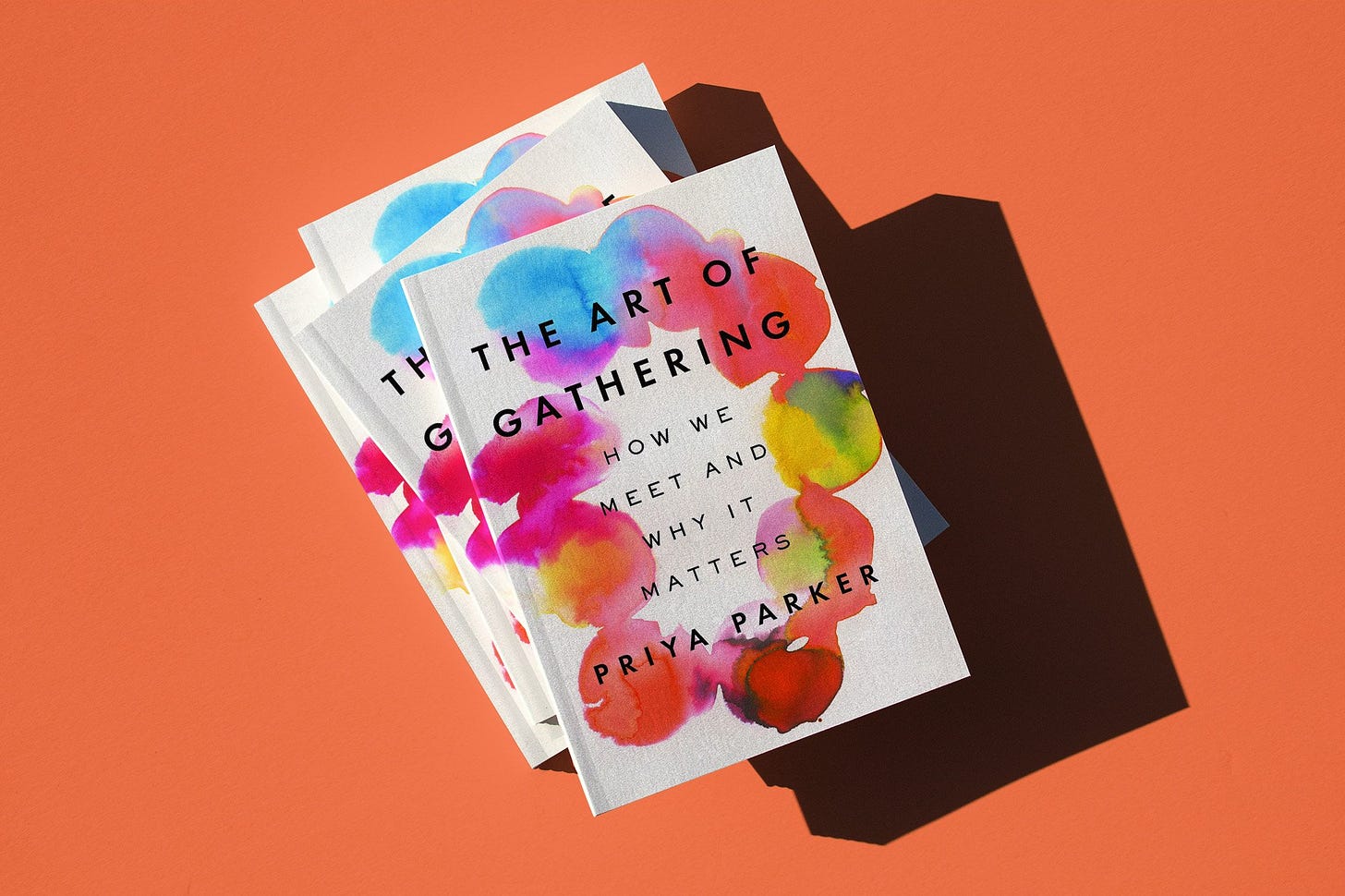
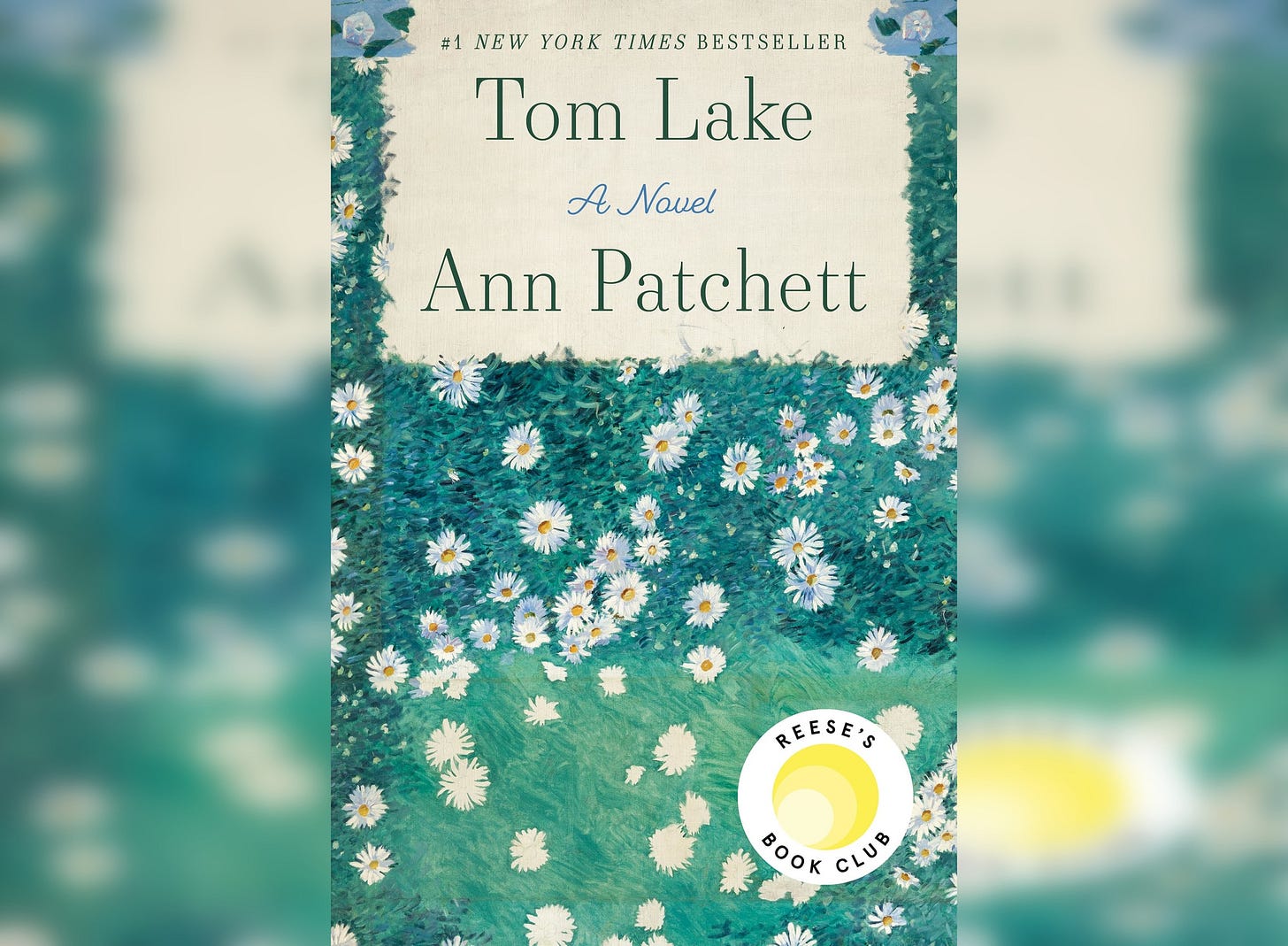
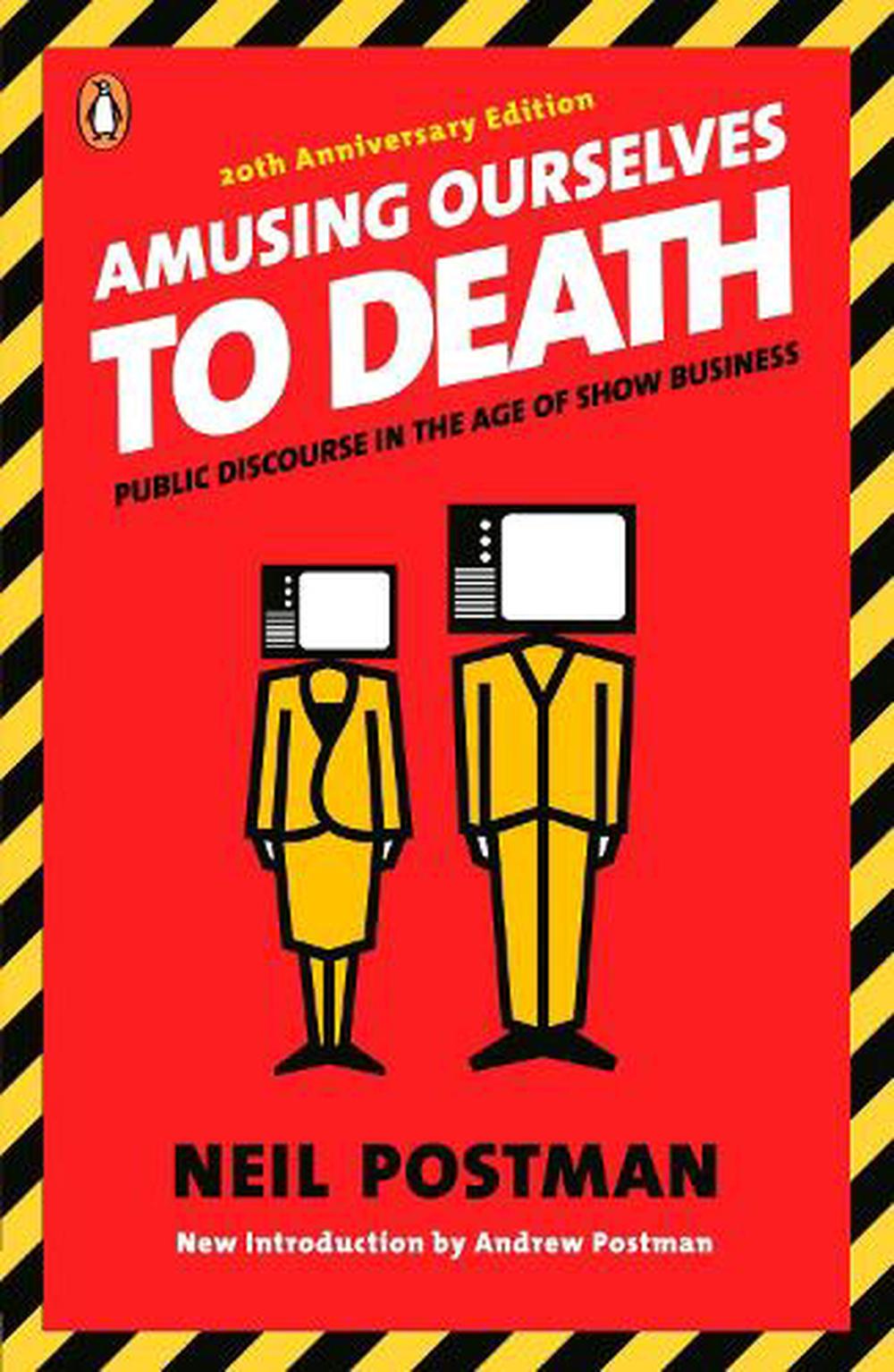
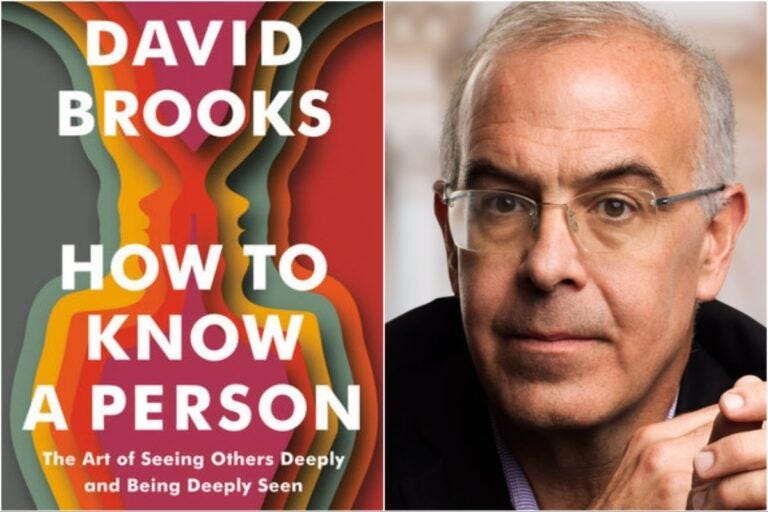
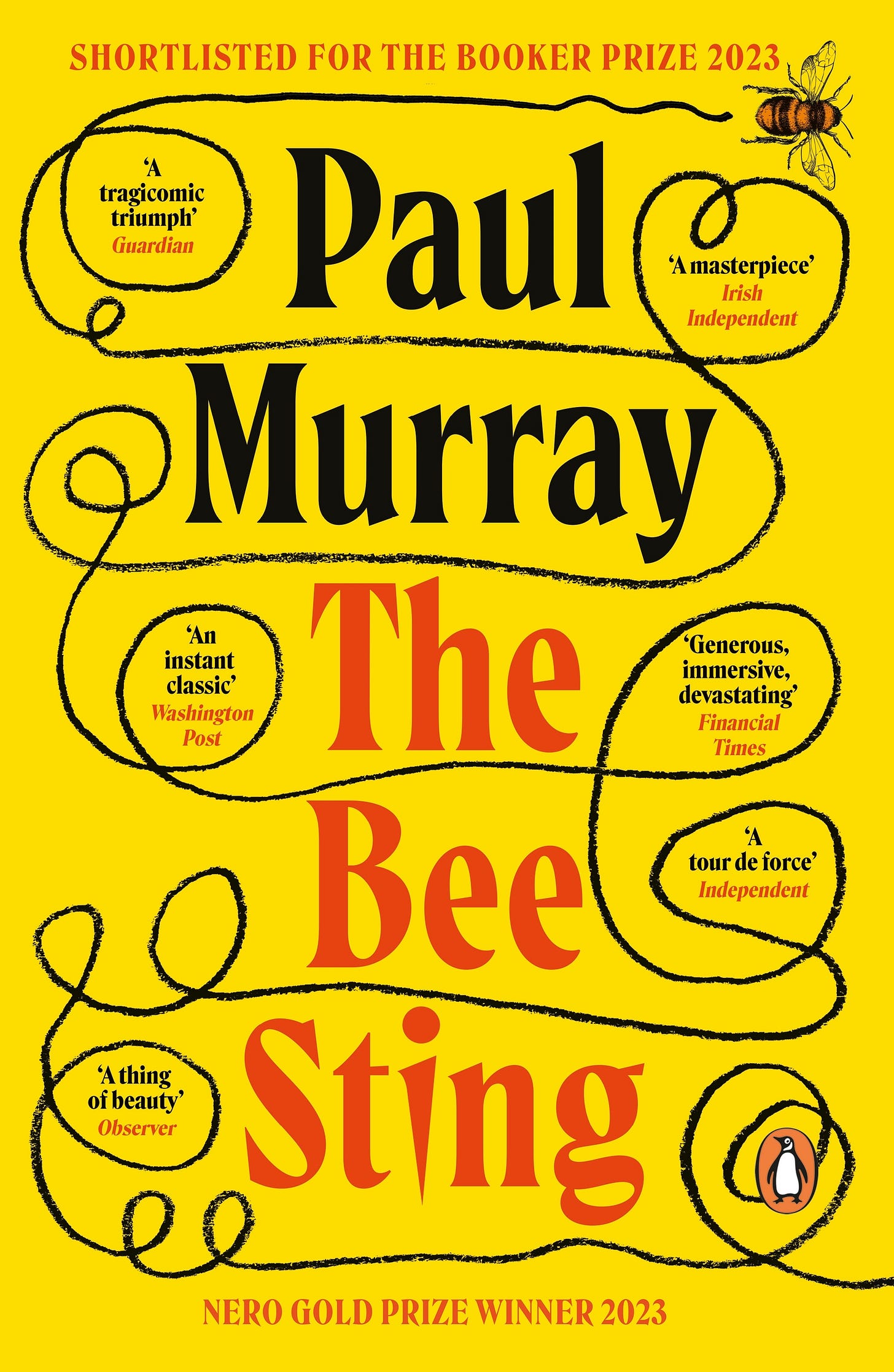
💜👍 Loved this! The explanations as to WHY you are reading things was a perfect intro to each book (NB: if you already had the library book in order to be able to spill something on it, weren't you already going to read it⁉️ Or maybe "the wife" took it out 🤷) & David Baldacci is a long time favourite so it's nice when people you admire from afar for their work turn out to be worthy of real life 🫂 as well.
Just to say, I immediately went to my library & found 2 of your books - one I put on HOLD, & the other was available to borrow, so thanks 👍👏 Just the fiction ones for now as the world seems to be full of gloomy analysis of "what went wrong" "what is going wrong" "is this the end of the US as a democracy & what will that mean for the rest of the world" etc. - need some of that entertainment as escapism! 😉
Love these reviews, bit disturbed by the tagline implying that summer is already over.